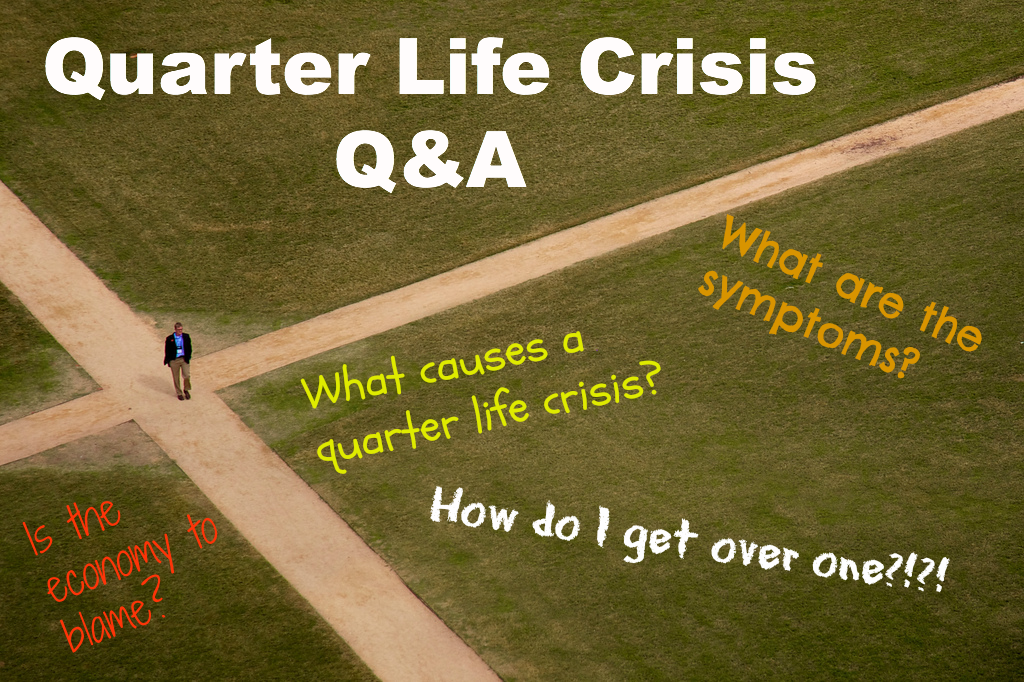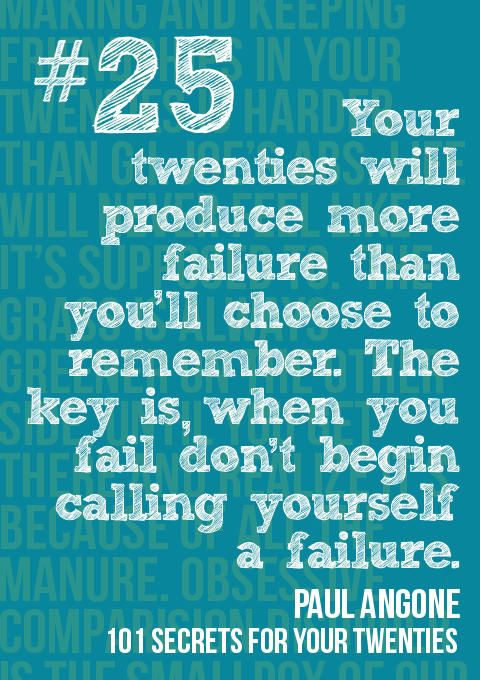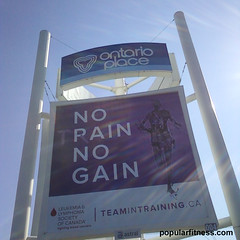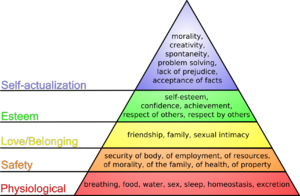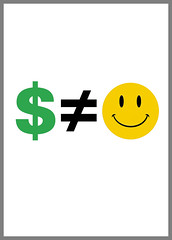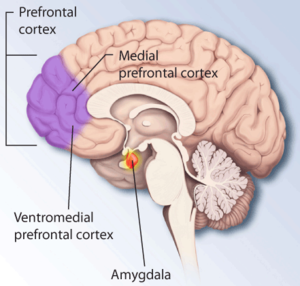Q: "In a recent newsletter you mentioned the work of Dr. Meg Jay and the importance of using your 20s to best advantage. I was wondering how an early-20s individual like myself can balance the pressure to achieve before 30 and the worry about delaying life after 30. I would love to hear your personal reflections on how you navigated these achieve/delay tensions, and what you would recommend for those still trapped (as Erik Erikson said) in 'disengaged confusion.'" - Maria Legault, @legault_maria A: Since you asked specifically for "personal reflections," let me start by saying that I'm no poster child for living the 20s "right"! I wish!
There's a reason I enjoy arguing against societal pressure to achieve before 30, like I did on HuffPost Live last week: it's precisely because I let that very pressure define much of my 20s existence.
I always felt like I wouldn't be "good enough" if accolades and other external measures of success arrived after the big 3-0 marker. In other words, I believed that 1/8th of my adult life was somehow more valuable than the other 7/8ths of it. (Crazy, no?)
Once I passed the 30 "deadline," though, I finally began to truly live my purpose because I was no longer afraid of failing. It was like, "well, I missed that 30 goal so I may as well throw caution to the wind and start trying crazy things out." Which, it turns out, is exactly the sort of attitude that makes great things happen.
Finding the Sweet Spot
Had I lived differently, though, what would have been ideal?
Well, I picture the pressure to achieve RIGHT NOW and the feeling that life can wait until 30 as two ends of the same continuum, as shown above.
Meg Jay argues heatedly against waiting until 30 to start living. I argue heatedly against feeling like you need to achieve before 30. Do we disagree with one another?
Yes and no.
I do think that, taken literally, Jay's argument can create the very pressure that will undermine what she most wants to see happen in 20something lives. Like in my case, a pressure cooker feeling of "oh no, time is slipping by!" doesn't typically make us move faster. It paralyzes us.
Which leads me to one of my major beefs with Jay's approach: the vast majority of twentysomethings I encounter are not "wasting their 20s" because they are think life can wait until 30. They're being inefficient precisely because they're scared to death that they're not doing enough with their lives fast enough.
That's why I advocate for taking the pressure off.
Here's the major caveat, though: I believe in taking the pressure off WHILE reflecting WHILE taking intentional action WHILE being mindful of glimpses of purpose whenever they arise WHILE finding your internal compass WHILE quieting the voices around you WHILE engaging in a life filled with active trial and error.
Given that time pressure is negatively related to creative cognitive processing, the more stressed we feel, the less we'll be able to construct fulfilling lives for ourselves.
So we must structure our days like productive artists: By finding some method for shutting out external deadlines, but still showing up to the canvas or the blank page every day. Every day.
While feeling no pressure to put any particular thing on it.
Only You Can Judge Success
Speaking of squashing creativity, classic research by Teresa Amabile points to another divergent thought killer: external evaluation.
If life is a creative enterprise which we each undertake in our own idiosyncratic way, the goal is not "succeeding" by some external standard before an externally-imposed deadline.
Instead the goal is making the most of each day set before us by living our life that is grounded in equal parts reflection AND action.
A number of commenters around the blogosphere have remarked that Jay's TED talk and book, The Defining Decade, are great for people who desire a traditional lifestyle - straight-arrow career, marriage, home, kids - but off the mark for people who want to live more unique lives.
I completely agree. Honestly, her book would've messed me up big time had I read it in my 20s. She advocates for a life I didn't - and still don't - want. A perfectly good life, mind you, but not mine.
So another key way to balance the pressure to succeed before 30 with the concern that we'll wait until 30 to start building a life is by living like no one is watching. Now and every day, regardless of the age we happen to be at the time.
And the secret is, nobody is actually watching. It may feel like they are, but that's a relic of adolescent thinking that will fade by the late 20s thanks to cognitive development. That may be why we get unstuck in our 30s and beyond: because we're finally free from the constraints of "others" that have dominated our adult lives to date.
Putting it All Together
No need to wait for your brain to mature, though.
You can act like an artist and create the life you want right now by:
- Taking the four steps to reducing social comparisons
- Finding your honest hour and using it
- Setting an anniversary date during which you actively make change for the coming year
- Soaking up past, present and future simultaneously
And don't forget to disregard "under 30" lists as you go!
Happy journeys,
Have a Q for our new Wednesday Q&A feature? Email it to me at Rebecca@WorkingSelf.com or tweet me @WorkingSelf. If your question is chosen for publication, you'll get a free mini-e-coaching session with me about values PLUS a backlink to your website!
Now what do you think? What are you doing - or have you done - to make the most of your 20s?





